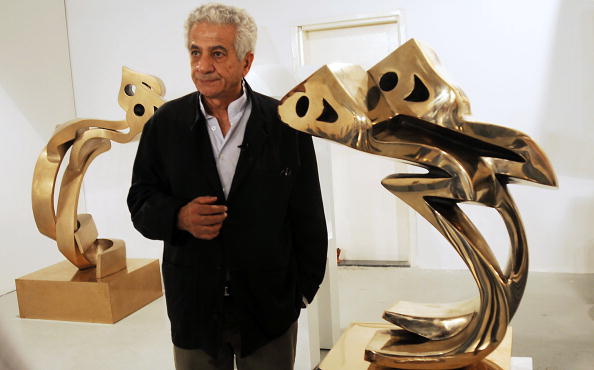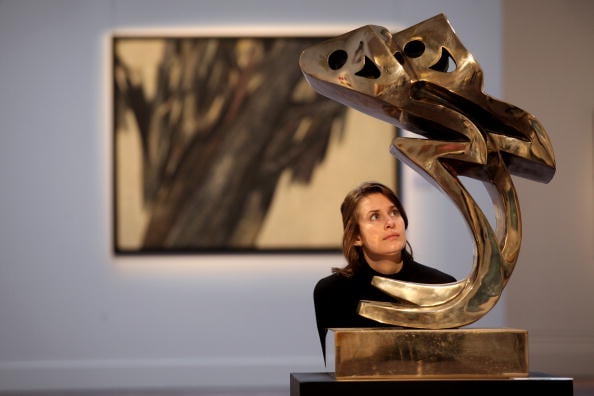People
Iranian Authorities Confiscate Passport of Artist Parviz Tanavoli
Iran’s most famous living artist received no explanation for the travel ban.

Iran’s most famous living artist received no explanation for the travel ban.

Lorena Muñoz-Alonso

Parviz Tanavoli, Iran’s most famous living artist, has been barred from leaving the country without further explanation. This past Saturday, border officials in Iran at Tehran’s international airport confiscated Tanavoli’s passport as he prepared to board a flight to London to attend an event at the British Museum, the Guardian reports.
“I have no idea why they did it,” Tanavoli told the paper by phone. “I have not done anything wrong. I spent the whole day at the passport office but no one told me anything, nor did anyone at the airport. I’m not a political person, I’m merely an artist.”
Yet this is not the first time that the 79-year-old artist—best known for his bronze sculptures depicting the word “heech” (which means “nothing” in Persian)—faces problems with the Iranian authorities. In 2014, some of his works were damaged and seized as a result of a bitter dispute over his house in Tehran which had been unfolding for well over a decade.
Tanavoli was due to attend the launch of his new book European Women in Persian Houses, at the British Museum in London on Saturday, and sign copies.
The event went ahead despite his glaring absence, with the participation of the rest of speakers, including the British Museum’s curator of modern and contemporary Middle Eastern art Venetia Porter, Moya Carey, Layla Diba, and Maryam Eisler.
“His books will be there but he won’t be there unfortunately,” Porter told the Guardian. “He is not just an artist, he is a real historian of Iran and has systematically over the years published books about Persian carpets, amulets, and other objects. This is what’s extraordinary about him: his deep love of Iranian culture, everything he does, all his art stems out of that,” she added.

A gallery assistant at Sotheby’s London look at Parviz Tanavoli’s Standing Heech Lovers sculpture, ahead of the Contemporary Arab and Iranian art sale on October 18, 2010. Photo by Oli Scarff/Getty Images.
Tanavoli—who holds dual Iranian-Canadian nationality and divides his time between the two countries—is the Middle East’s most expensive artist at auction, according to the Guardian.
According to artnet’s Price Database, his sculpture The Wall (Oh Persepolis) sold for $2.8 million at Christie’s Dubai in 2008, and both the British Museum and Tate Modern—where he was exhibited as part of the blockbuster exhibition “The World Goes Pop” last year—have works by him in their permanent collections.
In 2015, Tanavoli was the subject of his first institutional solo exhibition, which took place at the Davis Museum in Massachusetts.